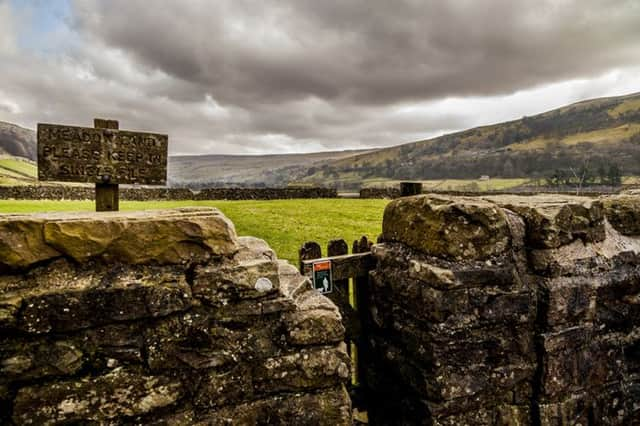Why you don’t have to be a tree hugger to care about nature.


Earlier this month I was on a panel event at the Nature and Wellbeing Summit in Birstol. The event focused on how the natural world can lead to a fairer and more just society. It was incredibly well attended, with participants of all ages and backgrounds, and the questions from the floor were extremely well informed, and sometimes very challenging.
On more than one occasion the questions raised concerns about the disengagement of young people from the natural world, and what we can do about it. It’s a serious issue; if youngsters grow up caring little about the natural world, and knowing even less, they are unlikely to worry about what happens to it.
Advertisement
Hide AdAdvertisement
Hide AdSeveral members of the audience and my fellow panel members explained what they had done, or are doing, to encourage their children to engage with nature ‘grazed knees, muddy hands, and all’. It was good stuff. But I put a bit of a damper on things because I became concerned about something very close to my heart - the guilt you have when your own children don’t care about nature, and a general sense of failure as a parent because of it.
I have two great ‘kids’ (a son and a daughter), both now well into their 40s, married and with children of their own. In fact my wife Dot and I are blessed with five grandchildren, the eldest twin lads of 21, a 16 year old granddaughter and two more boys of 14 and 12.
I tried, I really tried to get my own children to be as passionate about the natural world as I was as a child, and still am. I totally failed. And the grandchildren? I failed with all of them too. None of them are actually hostile to nature; but what fascinates me is that it just bores them.
The grandchildren do know about climate change (I made sure of that), they are aware about species extinction, but in an abstract “it isn’t really anything to do with me” kind of way. Not surprisingly, for a long time I felt really guilty about their attitude; I was a failure. And I suspect that some of the audience in Bristol may have felt the same, which is why I intervened in the debate. Because none of us should feel guilty if our own children and grandchildren don’t ‘get’ the natural world as we do. We can only try, and indeed forcing kids to ‘enjoy’ nature is probably horribly counter-productive anyway.
Advertisement
Hide AdAdvertisement
Hide AdIt’s something I have come to terms with over the years, but while personally I may no longer feel guilty, I do feel sad that something that has been such an enriching, all-consuming personal passion in my own life is not something any of my family enjoys.
It got me thinking after the trip to Bristol; do you have to be passionate about nature to want a Nature and Wellbeing Act, a piece of legislation to bring about the recovery of nature in a generation. It probably helps, but if that is all that motivates a call for such an act, it will almost certainly fail to reach the statute books.
Although I haven’t had the chance to talk to any of my grandchildren about it yet, I suspect or at least hope that they are all bright enough to realise and value the work that nature does for us, and the consequences of trashing the planet in the pursuit of material wealth.
Nobody in their right mind would dismantle a vehicle whilst travelling in it, but that’s what we are doing to the planet. Nobody would suggest that it is sensible to deprive a sick person of a healing environment; but that’s what we are doing when we deny people access to nature, either deliberately, or through ignorance.
Advertisement
Hide AdAdvertisement
Hide AdI love my grandchildren, and I want them to grow up in a planet at least as rich, whole and safe as the one I grew up in – even if they don’t appreciate it as much as I do.
Leading UK ecologist Professor Sir John Lawton is President of Yorkshire Wildlife Trust, Vice President of the RSPB and a Life Fellow of WWF-UK